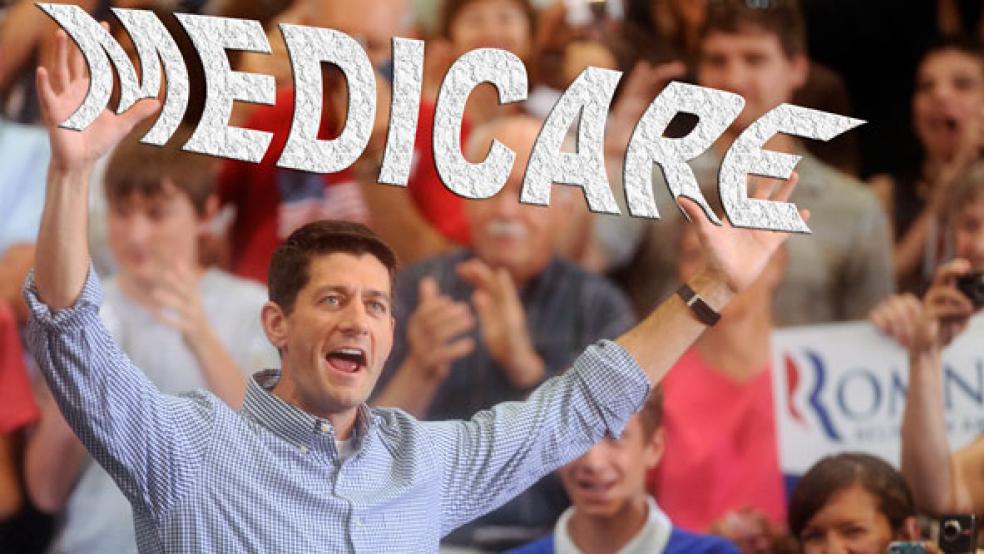Anyone nearing retirement - or already retired - should pay very close attention to the doings of the 115th Congress that was sworn in this week.
Repeal of President Barack Obama's Affordable Care Act (ACA) tops the agenda for Republicans, who will control the White House as well as both houses of Congress when Donald Trump takes office on Jan. 20. That will place a heavy financial toll on millions of older Americans who do not have access to employer-sponsored insurance or Medicaid, and who are too young to enroll in Medicare. But repeal of the ACA will also raise the cost of Medicare for current and future enrollees.
Related: Congress Is Headed for a Showdown With Trump Over Obamacare Repeal
The details surrounding the repeal of what became known as Obamacare - and how it will be replaced, if at all - are unknown. But it is clear that Republicans, rather than fix the existing system's problems, intend to gut the most important social insurance legislation since the passage of Medicare and Medicaid in 1965.
And this is despite the fact that a strong majority of Americans actually like what the ACA has brought them. Last year, 77 percent of adults in marketplace plans, and 88 percent of those who received Medicaid coverage under the ACA expansion, were either very or somewhat satisfied with their coverage, according to polling by the Commonwealth Fund, a foundation focused on healthcare research.
For older Americans, ACA repeal will mean higher premiums and out-of-pocket costs. Most Republican proposals that have been circulated loosen or eliminate restrictions on higher policy prices for older buyers. The program's income-related tax subsidies, which aim to make premiums affordable for middle- and lower-income households, likely would be replaced by a flat tax credit that shifts costs to enrollees. Some repeal-and-replace plans also weaken the current ban on covering people with pre-existing conditions.
ACA AND RETIREMENT
The ACA, enacted in 2010, typically is not considered retirement-related legislation, but it has made a big difference for millions of workers in the critical years leading up to retirement.
Related: Trump Promises To Repeal and Replace Obamacare Together, But Can It Be Done?
Despite the improving economy, many older Americans have never fully recovered from the Great Recession (reut.rs/2iIf86F). Before the ACA, it was near impossible for jobless older workers to find quality insurance in the individual insurance market. Insurers were permitted to charge much higher premiums for older customers than for young. Coverage of catastrophic health events, such as cancer or a stroke, was weak or absent entirely.
In 2013, before ACA coverage fully kicked in, 14 percent of workers aged 55-64 were uninsured. The percentage dropped to 9.1 in 2016, meaning there were 3.1 million previously uninsured people who now had health insurance. Adults in this age bracket have the lowest uninsured rates of any age group, Commonwealth reports. The foundation’s research also finds that the ACA helps people bridge coverage gaps when they temporarily lose employer-based insurance.
“If you think about what the world looked like prior to the ACA for people who had to retire early or didn’t have an employer plan, really their only option was the individual insurance market,” said Sara Collins, vice president of Commonwealth.
Repeal of the ACA would also have a direct impact on Medicare spending and costs to beneficiaries.
Full repeal would increase Medicare spending by $802 billion from 2016 through 2025, according to the Congressional Budget Office (CBO), primarily by restoring higher payments to health providers and Medicare Advantage plans. That would lead to higher Part A (hospitalization) deductibles and copayments, and higher premiums and deductibles in Part B (outpatient services).
Repeal also would worsen the long-range outlook for the Part A trust fund. Prior to the ACA, Medicare’s trustees projected the fund would lack revenue to meet all its expenses starting this year; the law’s cost savings and new taxes pushed that date back to 2028.
MEDICARE REFORMS
Congress may also take up conservative Medicare reform proposals that could hit the pocketbooks of future retirees.
Premium support, an idea long advanced by House Speaker Paul Ryan, would replace today's defined set of promised Medicare benefits with an annual voucher that enrollees would use to buy health insurance in a market exchange. Competing plans could include traditional Medicare and plans offered by commercial insurance companies. The impact on premiums would depend on the specifics of whatever program might be enacted.
Meanwhile, conservative think tank the Heritage Foundation has proposed raising the eligibility age for Medicare from 65 to "at least 68" over a period of 10 years, and then indexing it to life expectancy. Unless they are still working, these folks would rely on whatever replaces the ACA for health insurance.
It all adds up to a period of frightening uncertainty about coverage and cost over the next few years for people close to retirement, and possible higher Medicare costs for those already in retirement.
One thing it does not sound like is a formula to make healthcare great again.




